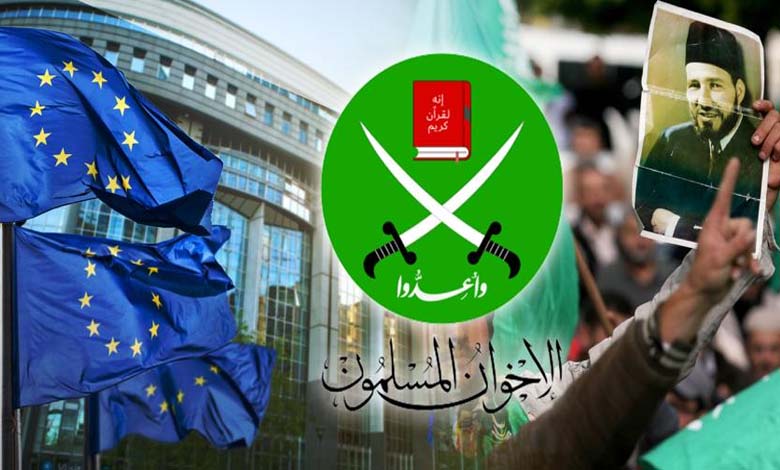The Muslim Brotherhood under the Austrian Parliament’s scrutiny… An awareness document for lawmakers on the dangers of the group

The Austrian Parliament has prepared a dossier on the history of the Muslim Brotherhood as part of an effort to raise lawmakers’ awareness of the group’s ideology, activities, and global influence.
According to the document, “the Muslim Brotherhood was founded nearly a century ago in Egypt and is sometimes viewed as the starting point of modern Islamism.”
-
On June 30… Which countries have classified the Muslim Brotherhood as a “Terrorist Organization”?
-
A researcher in political Islam reveals the Brotherhood’s evasions to conceal their sources of funding… Details
The report explains that the Brotherhood has various branches in the form of organizations, parties, and movements around the world, and that several associations in Austria have links to the group.
The dossier outlines the Brotherhood’s origins in Egypt, provides examples of its branches in the Arab world, and traces the evolution and dynamics of its affiliated entities.
In addition to the main organization in Egypt, it highlights the history of the Ennahdha movement in Tunisia and the emergence of Hamas as an example of an extremist offshoot.
-
Strike every year… Germany besieges extremists and tightens the noose on Iran and the Muslim Brotherhood by banning their activities
-
Defeats and hits.. Broad European Movements against the Brotherhood Terrorist Organization
In an attempt to pinpoint when the Brotherhood turned to violence, the document states: “After Hassan al-Banna’s death and the group’s first ban in Egypt, it continued operating clandestinely but was paralyzed by internal divisions between its extremist and moderate members.”
It adds: “It was unclear in which direction the divided organization would evolve. During this period, Sayyid Qutb became the key ideological figure of radical Islamism, advocating the use of force to achieve its aims.”
The report continues: “Despite decades of activity, the Brotherhood remains difficult to fully understand. Its groups and branches are once again under pressure today, and the organization is banned in many countries.”
-
From ‘ISIS’ to the Brotherhood… Request for a new briefing in the German Parliament
-
New details of Austria’s Muslim Brotherhood cells
The Austrian Parliament’s briefing papers generally provide concise analyses of international issues and topics relevant to Austria’s political and geographic priorities.
According to the Parliament’s official website, these documents are intended to assist lawmakers in their international political work.
Although the current dossier focuses mainly on the historical dimension of the Brotherhood’s rise and activities in the Middle East, further reports are expected to follow on the group’s operations in Europe, as part of ongoing efforts to raise awareness among Austrian lawmakers about the Brotherhood’s threat.
-
Austria issues a book about the Brotherhood, The group’s secrets in Europe and important recommendations
-
Strong Parliamentary Action against Brotherhood Arm in Austria
Previous parliamentary inquiry
This is not the first time the Austrian Parliament has addressed the issue of the Muslim Brotherhood. Harald Stefan, a member of the opposition Freedom Party (FPÖ), previously submitted a parliamentary inquiry.
According to the inquiry’s preamble, reports published on October 10 revealed the discovery and arrest of an employee of the Directorate for State Security and Intelligence (the domestic intelligence agency), suspected of leaking information about ongoing investigations to the Muslim Brotherhood.
The inquiry stated that the agent, currently under investigation, is of Egyptian origin and had passed confidential information to the group.
-
Germany: Parliament recommended banning the Brotherhood and confiscating its funds
-
Brotherhood ‘threats’ put two ministers under special guard in Austria
“The suspect was monitored for several weeks before being arrested following a meeting with members of the anti-constitutional organization,” it said, referring to the Muslim Brotherhood.
Earlier, the Vienna Public Prosecutor’s Office announced that “the suspect was under investigation for abuse of office, as he had made several database queries in recent months without official reason, allegedly in connection with the Muslim Brotherhood.”
According to the Vienna Prosecutor’s Office spokesperson, Thomas Vecsey, “the man admitted to the facts.”
-
The Brotherhood… How have they wrought ruin and chaos wherever they go?
-
European Center Warns of Secret Work of the Brotherhood After Their Activities Are Besieged
As reported by Austrian media, the case involves the suspension of a temporary employee of the Directorate for State Security and Intelligence due to his links with the Muslim Brotherhood. He reportedly passed important information to its leadership but did not have access to more sensitive data.
According to the Austrian magazine Profil, the suspect worked in the counterterrorism division of the intelligence directorate and allegedly informed Brotherhood members that they were under investigation and surveillance, at times even disclosing the subject of the investigations.












